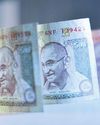
But prevailing assessments of China's economic health are deeply flawed.
The headlines in 2024 have been mixed. China's GDP is growing, though the precise rate is always a matter of debate. Youth unemployment, which shocked policymakers when it reached a peak of 21.3% in June 2023, has declined to 17.6%. And the property-market crisis finally seems to be moderating, with transactions increasing following the government's bold intervention to support the sector, which, directly and indirectly, accounts for one-third of the Chinese economy.
And yet, the dynamism that characterized China's economy over the last three decades seems to be missing. Consumption growth is slow, as apprehensive Chinese households maintain high savings rates. Likewise, foreign investors' confidence is at an "all-time low." As prices drop, fears of a deflationary spiral are growing, recalling the prolonged stagnation that gripped Japan beginning in the 1990s. Against this backdrop, some now argue that China's economy has already peaked.
But such assessments are not particularly reliable. For starters, they mostly reflect the perspective of multinationals, concerned with their own profits, or foreign businesses and governments that take an adversarial view of Chinese growth. This helps to explain why observers tend to focus on specific sectors, such as luxury goods or electric vehicles, which account for a small part of a vast and complex economy and are disconnected from the challenges confronting most of China's 1.4 billion people and the government that manages their lives.
A second problem with much of the analysis of China's economy is that it is not evidence-based.
هذه القصة مأخوذة من طبعة January 01, 2025 من Mint Mumbai.
ابدأ النسخة التجريبية المجانية من Magzter GOLD لمدة 7 أيام للوصول إلى آلاف القصص المتميزة المنسقة وأكثر من 9,000 مجلة وصحيفة.
بالفعل مشترك ? تسجيل الدخول
هذه القصة مأخوذة من طبعة January 01, 2025 من Mint Mumbai.
ابدأ النسخة التجريبية المجانية من Magzter GOLD لمدة 7 أيام للوصول إلى آلاف القصص المتميزة المنسقة وأكثر من 9,000 مجلة وصحيفة.
بالفعل مشترك? تسجيل الدخول

Big banks flee climate coalition formed to cut carbon emissions
U.S. megabanks want to leave behind some green pledges in 2024 finance Morgan Stanley, Citigroup, and Bank of America this week withdrew from an ambitious pandemic-era climate coalition designed to help drive a shift to reduce carbon emissions by businesses.

Training
Is war a debate, a dilemma or a drama? Or can it be a poem? A class contemplates its many meanings

No End
An idyllic summer comes to a close with the dawn of realisation

Ocean of Spines
Trying to conjure a sliver of the past, and remember to whom a story belonged

What we want to read in 2025
The Lounge team’s list of unread books has only grown longer, while we also revisit and re-read old favourites

Data rules draft: focus on minors, national security
A draft of rules for India's data protection law has proposed that parents must identify themselves before their children can join certain online platforms.

Netbanking 2.0: NPCI pilot to ease mobile payments
You're about to pay for a purchase on a popular e-commerce website from your mobile, but your bank doesn't show up in the netbanking list.

New Angels Rush To Prop Early-Stage Funding Slack
Sports stars, actors and young professionals are taking early bets on new startups

Divided EU allows India to pitch for carbon tax relief
Differences within the European Union (EU) over a looming carbon border tax have given India an opportunity to pitch for some relief from its onerous requirements that are expected to hurt exports to one of the country's largest trading partners.

States' Q4 borrowing to rise 18% after Q2 growth slump
Capex boost likely as West Bengal, Maharashtra, Karnataka lead ₹4.73 tn borrowing plan